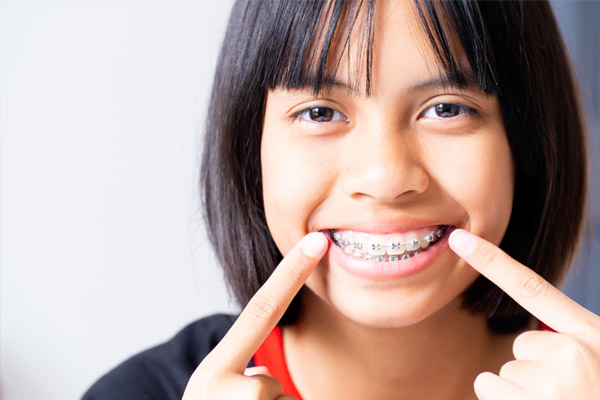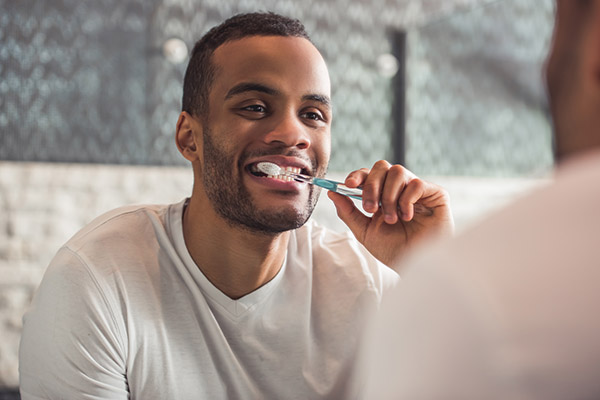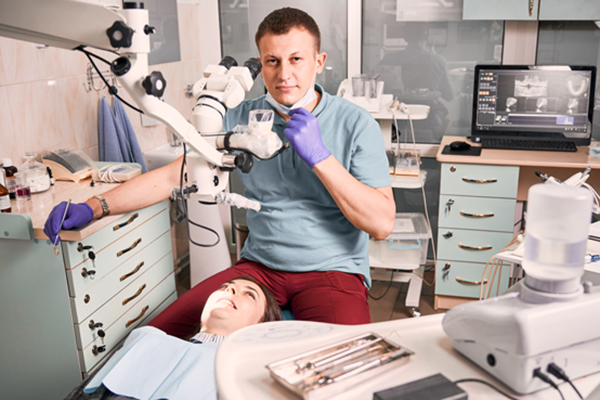 It is easy to understand why Invisalign® for teens is such a popular teeth-straightening treatment. It removes the need for traditional braces that can be cumbersome, conspicuous, and sometimes painful. Parents and teens alike should find out all they can about Invisalign® treatment before making the decision to proceed.
It is easy to understand why Invisalign® for teens is such a popular teeth-straightening treatment. It removes the need for traditional braces that can be cumbersome, conspicuous, and sometimes painful. Parents and teens alike should find out all they can about Invisalign® treatment before making the decision to proceed.
8 questions to ask your dentist about Invisalign® for teens
If you are not sure what to ask your dentist about Invisalign® treatment, here are some important points to cover.
1. What types of issues does Invisalign® treat?
Invisalign® treats problems with the alignment of the teeth. Examples of types of malalignment that it may be able to correct include crossbite, crowding, open bite, overbite, and underbite. However, the more severe the malalignment is, the less likely that it can be treated with Invisalign®, which may not exert sufficient force to move the teeth into the desired position. Be sure to ask your dentist, though, because the technology has advanced significantly in the past 20 years. Even if Invisalign® alone is not sufficient to address the problem, it may be part of a broader treatment plan.
2. How long does the treatment course last?
According to Invisalign®, the total treatment time averages a year to a year and a half. However, this can vary depending on factors such as the complexity of the case and the patient's compliance with the treatment.
3. How many hours per day does the patient have to wear the aligners?
Typically, Invisalign® patients have to wear the aligners 20 to 22 hours per day. The aligners are removed for eating and oral hygiene. Your dentist can provide more specific instructions.
4. Are there any restrictions on food a patient can eat while using Invisalign®?
Because aligners are removed for eating, there are no restrictions on the foods that patients can eat during treatment. However, it is important that Invisalign® patients brush their teeth and clean the aligners after eating anything, whether it be a snack or a full meal.
5. What are the aligners made of?
The aligners are made of a type of clear, smooth plastic. Invisalign® calls it SmartTrack material and holds a patent on it.
6. Is Invisalign® safe?
The SmartTrack material from which the aligners are made is free of toxic ingredients such as bisphenol-A. The treatment is safe and effective.
7. Is Invisalign® painful?
During the course of treatment, the patient receives a new set of aligners approximately every two weeks. With each change of aligners, the teeth may be tender and sore for a few days. This is mild and temporary. Other than that, Invisalign® may cause some minor irritation of the gums, but because the material the aligners are made of is smooth, it should not cut the soft tissues of the mouth or cause any bleeding.
8. Can patients participate in activities?
If the aligners interfere with extracurricular activities, such as sports or music, they can be removed as necessary as long as they are replaced when the activity is complete.
Conclusion
A dentist can inform you whether you or your child is a candidate for Invisalign® for teens and answer other questions you have about the treatment.
Request an appointment or call The Smile Spa at 818-573-2196 for an appointment in our Agoura Hills office.
Recent Posts
A significant advantage of Invisalign® for teens is that it makes the treatment more discreet and less conspicuous than traditional braces. Nevertheless, you may be worried that the treatment will affect your speech. While this is possible, it is usually temporary, and there are things you can do to lessen the effects.The clear aligners used…
If your son or daughter is concerned about crooked teeth or a bad bite, you may want to consider Invisalign® for teens. This is an alternative to metal or ceramic braces, and it has numerous benefits, especially for those who are self-conscious about how they look. There are various reasons why Invisalign may be the…
A teenage boy or girl who deals with a crooked smile or uneven bite could be able to use Invisalign® for teens as a corrective treatment. The adolescent and high schools years are often filled with social pressure and a desire for acceptance, and any problems or concerns with a teen’s smile could create self-confidence…


